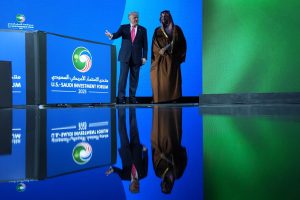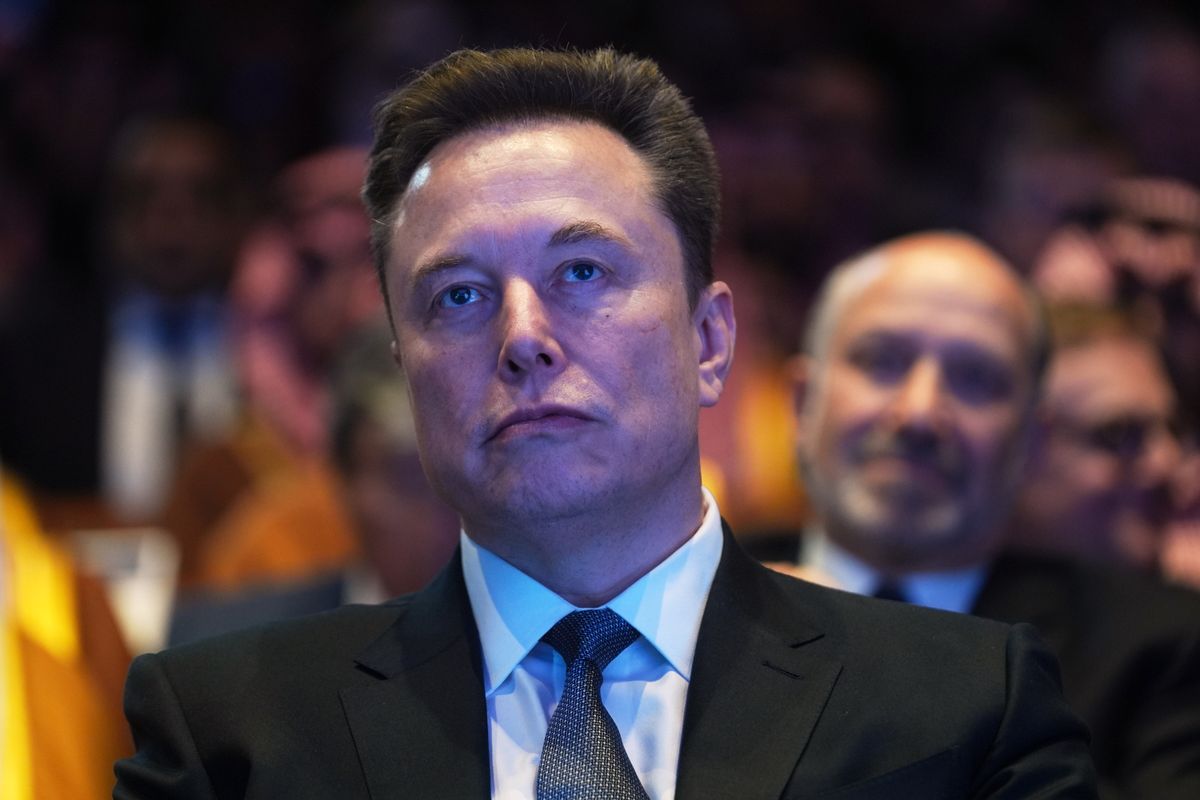WASHINGTON (AP) — President Donald Trump is increasingly counting on the tech sector and the development of artificial intelligence to deliver on his economic agenda, a reality laid bare this week as he hosted Saudi Arabia’s Crown Prince Mohammed bin Salman.
The crown prince has committed to invest $1 trillion with U.S. companies, a pledge that is largely about using Saudi Arabia’s oil and natural gas reserves to pivot his nation into becoming an AI data hub.
“We will work closely with friends and partners like those in this room to build the largest, most powerful, most innovative AI ecosystem in the world,” Trump said at the U.S.-Saudi Investment Forum on Wednesday.
Sitting in the front row of the audience at the Kennedy Center were Nvidia co-founder Jensen Huang and tech billionaire Elon Musk.
Trump took credit for the new investments and stock market performance this year — both of which have been a function of the AI buildout. For all of Trump’s claims that his tariffs are generating new investments, much of that foreign capital is going to data centers for AI’s computing demands or the power facilities needed to run those data centers.
The president called the stock market gains “amazing,” yet leading stock indices fell Tuesday over growing anxiety about whether AI companies are fueling a broader financial bubble.
There are also growing political risks for Trump if the AI buildout further pushes up utility prices for American consumers or if the jobs he promises in the sector fail to materialize.
The consultancy Oxford Economics released an analysis Tuesday that said AI investments offset the “extreme uncertainty” in the U.S. economy this year — uncertainty caused in part by Trump’s tariff hikes that have elevated inflation and potentially contributed to a slowdown in hiring.
The firm noted that AI companies are starting to rely on debt to pay for the growth in the sector, which could suggest “a more vulnerable phase” next year for the boom.
Saudi investments are anchored in AI growth
The race for investments is evidenced in Saudi Arabia’s own commitments, which rose from $600 billion during Trump’s visit there in May to $1 trillion when Prince Mohammed came to the White House on Tuesday.
Trump said he’s already pushed Prince Mohammed to increase that figure, saying he lobbied the de facto ruler of Saudi Arabia backstage before their appearance at the Kennedy Center.
“While we were taking the picture, I said, ’Could you make it $1.5 trillion?’” Trump said. “So he’s got something to think about.”
When Blackstone Group CEO Stephen Schwarzman was asked at the forum what the most important growth stories were at the summit, the billionaire investor said, “AI and, you know, power.”
“Those are the two things that we spend a lot of time on,” he said. “At Blackstone, my company, we’re the largest developer, the largest owner, of data centers in the world. And this is a really explosive area.”
Tareq Amin, CEO of Humain, said his Saudi-backed AI company was launched when Trump visited the Middle Eastern nation in May. His company saw the opportunity to build data centers and AI infrastructure by leveraging Saudi Arabia’s energy production and U.S. technology.
“Yes, it is an ambitious, crazy thing,” Amin said with confidence.
Musk, whose xAI company has a chatbot called Grok, predicted that AI and robots would eventually allow work to become optional for human beings, that money would become “irrelevant” and poverty would cease to exist.
“AI and humanoid robots will actually eliminate poverty,” said Musk, the head of Tesla and SpaceX. He added that robots would “make everyone wealthy.”
Nvidia’s Huang, appearing on stage with Musk, did not make as bold a prediction. He said: “Everybody’s jobs will be different. I think that that’s for sure.” Huang spoke ahead of the $4.5 trillion computer chip company announcing its quarterly earnings Wednesday. The company afterward reported strong earnings for its third quarter with net income climbing 65% from a year ago.
During Trump’s remarks, the president asked Huang if any other country could compete with its Blackwell chip that is enabling much of the AI development.
“Not yet, sir,” said Huang from the front row.
By JOSH BOAK
Associated Press


